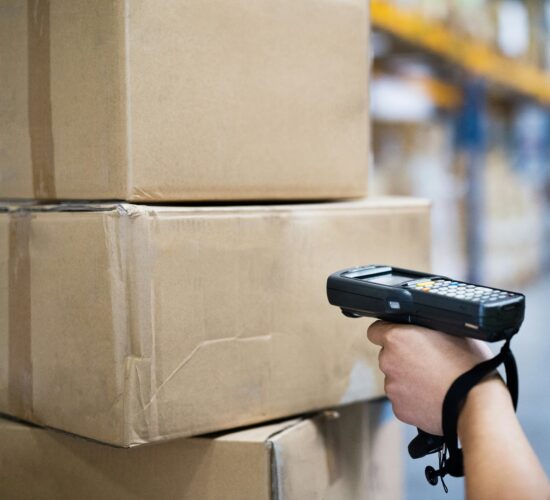How to Select the Best Security Measures for Your Supply Chain

In today’s interconnected world, businesses rely heavily on efficient and secure supply chains to ensure the smooth flow of goods and services. However, supply chains are exposed to various risks, including cyber threats, physical security breaches, and natural disasters. Organizations must carefully choose and implement the proper security measures for their supply chains to maintain business continuity and protect valuable assets. This article explores key strategies for selecting the most effective security measures to safeguard your supply chain.
Understanding Your Supply Chain’s Risks
The first step in choosing the proper security measures is to understand the risks your supply chain faces. Supply chains vary significantly across industries and regions, so assessing general and specific risks that could disrupt operations is essential. These include everything from cyberattacks, theft, and fraud to natural disasters, supply shortages, and geopolitical instability.
A thorough risk assessment allows businesses to identify potential vulnerabilities at every stage of their supply chain, from suppliers to transportation networks and storage facilities. Once you have mapped out the flow of goods and identified key stakeholders, you can prioritize areas that need immediate attention. By fully understanding your supply chain’s risks, you can select appropriate security measures that address the most critical vulnerabilities and protect against the most likely threats.
Implementing Digital Security Solutions
As businesses increasingly rely on digital tools and systems to manage their supply chains, securing digital assets becomes paramount. Cybersecurity is an essential component of any supply chain security strategy. Protecting sensitive data from hackers, such as inventory information and financial transactions, is crucial to preventing disruptions and safeguarding your reputation.
Start by implementing encryption for sensitive data and secure communication channels to protect against unauthorized access. In addition to encrypting data, using robust authentication methods, such as multi-factor authentication, adds an extra layer of protection against cyber threats. Regularly testing your network for vulnerabilities and employing monitoring tools to detect suspicious activity are effective ways to bolster digital security. By taking proactive cybersecurity measures, businesses can minimize the risk of cyberattacks that could cripple their supply chain.
Strengthening Physical Security Measures
While digital security is critical, physical security remains equally important in securing your supply chain. From warehouses to distribution centers and transportation routes, securing physical assets helps protect your products and infrastructure from theft, damage, or sabotage.
Investing in physical security systems such as surveillance cameras, motion sensors, and alarm systems is essential for monitoring activity in and around your facilities. Equally important is controlling access to sensitive areas within your supply chain. Access control measures, such as ID badges, biometric authentication, and keycard systems, ensure that only authorized individuals can enter restricted zones. Implementing GPS tracking for shipments and RFID tagging for products also helps track goods moving through the supply chain, providing real-time insights into their location and condition.
Collaborating with Trusted Partners
An often overlooked aspect of securing a supply chain is the relationship between businesses and their partners. Your supply chain is only as secure as the partners you work with. Therefore, selecting trustworthy suppliers, distributors, and other stakeholders is critical to reducing security risks.
Start by carefully vetting potential partners before entering into agreements. Ensure that they follow best security practices and comply with industry standards. Look for partners who invest in their security infrastructure and are transparent about their security protocols. In addition, clear security expectations from the outset must be established, and open communication must be maintained to ensure that all parties are aligned regarding their security responsibilities. By fostering strong relationships and ensuring that your partners adhere to the same high-security standards, you create a more resilient supply chain better equipped to handle potential threats.
Monitoring and Responding to Security Threats
Security is not a one-time effort but an ongoing process that requires continuous monitoring and quick response to emerging threats. Monitoring tools can help businesses track the flow of goods, detect vulnerabilities, and identify suspicious activity as it happens. For instance, using sensors and RFID technology to monitor inventory can provide real-time updates on the status and location of goods. These insights can help businesses respond swiftly to supply chain disruptions, minimizing the impact of potential threats.
In addition to monitoring, having a clear and actionable response plan is essential for a breach or disruption. This plan should outline steps to mitigate damage, protect sensitive data, and communicate with relevant stakeholders. The faster a company can respond to a security incident, the less damage it will incur.
Staying Compliant with Industry Regulations
Many industries are subject to regulations that dictate specific security measures for supply chains. Compliance with these regulations is necessary to avoid legal penalties and ensure that businesses adhere to best security practices. Regulations may vary depending on the region and industry but generally focus on data protection, environmental concerns, and product safety.
To ensure compliance, businesses must stay current with the regulations that apply to their specific industry. This may involve regularly reviewing legal requirements and implementing new security measures to meet evolving standards.By prioritizing compliance, businesses avoid legal complications and demonstrate a commitment to maintaining secure and reliable supply chains.
Choosing the proper security measures for your supply chain minimizes risks and protects your business from disruptions. Continuous monitoring and compliance with industry regulations ensure that your security measures remain effective in the face of evolving threats. As supply chain risks grow in complexity, adapting your security strategies to safeguard your business against potential disruptions is crucial. By selecting the best security measures for your specific needs, you can protect your supply chain, enhance your company’s reputation, and ensure long-term success.
Additional Information
- Blogs
- proper security measures, supply chain
- Ari Raptis